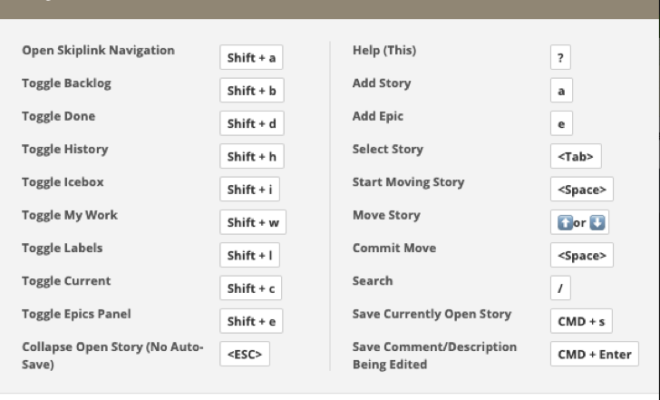Can Blockchain Technology Improve Online Learning?

The majority of people are aware that blockchain is the authorized technology for digital currency. However, few individuals or industry professionals are aware that blockchain tech is boosting a wide range of businesses and industries.
In Online Learning, Blockchain Technology
Online learning is one of the businesses that blockchain technology has enabled. The training and learning sector now includes institutions and a range of third-party companies. Blockchain technology aids in the securing and protection of this new educational model. There are a few considerations and chances for online teachers, schools delivering online learning, and private sector blockchain development to improve the quality of learning systems and goods. In this post, we’ll look at how blockchain technology might help improve online education.
What Exactly Is Blockchain Technology?
Blockchain is a system that provides a method of preserving information that makes it impossible to edit, hack, or check within the system. Blockchain technology is fundamentally a digital ledger event that is replicated and dispersed across the blockchain’s complete network of computer systems.
Blockchain Enhances Online Learning
Blockchain technology has changed online education. We will discuss how blockchain might be useful in online learning.
- Data Storage and Tracking
Blockchain technology records and stores data in bunches known as blocks. The blocks are joined together in sequential order to make a parallel line. Once data is stored, it cannot be changed or overwritten. You can, however, alter the stored block. For example, X became Y at a specific point in time. Blockchain technology tracks data variability in a non-destructive manner.
- Digital Badges and Credentials
One method blockchain technology aids online learning is through the development of secure digital emblems and certifications that can be easily validated and posted on digital platforms:
- Edgecoin is another platform that provides blockchain-based intelligent certifications and virtual credentials. Edgecoin Pay provides educational institutions with a secure web-based dashboard for developing, maintaining, and issuing blockchain-based credentials such as transcripts, diplomas, report cards, and certifications.
- Many firms, including Rosetta Stone, Google, Udacity, Kaplan University, and Hootsuite, have worked with Accredible for certification programs since its inception in 2013. Accredible is a paper-free, one-click electronic blockchain-based credential verification service that interfaces with a wide range of digital tools and systems.
- As Educational Rewards, Cryptocurrency
What occurs if you earn bitcoins after finishing your studies? Of course, you are taken aback, because bitcoin is not a modest sum to provide as a reward. This might encourage students and learners to complete the curriculum as soon as possible.
- Platforms for Decentralized eLearning
Blockchain-based educational systems are available. These frameworks are upheld through consensus rather than centralized power. Peer-to-peer learning is made possible by blockchain technology. It also promotes standardization between educational institutions. We can think of sharing a medium that no single instructor owns solely.
Blockchain and online education are a potent combination.
Admittedly, blockchain and education are a great mix. Blockchain technology in eLearning raises the quality of institutions and education. It increases the employment of intelligent procedures.
Obstacles to Blockchain Technology in Education
There are several obstacles for trainers and institutions to overcome for blockchain technology to thrive in the education sector. A Gartner survey found that over half of higher education responders were uninterested in embracing blockchain technology. The following are the major roadblocks:
- Security
- Scalability
- Adoption rate
- Cost
- Security
Everywhere, security is a huge problem. Sensitive information is recorded in blocks on the blockchain. Institutions must consider what information they preserve and why. Strong data security must be implemented in educational institutions. Permission blockchain and encrypting data on the blockchain can improve security. With blockchain development, schools and institutions must increase their security.
- Scalability
Another barrier to the adoption of blockchain technology in eLearning is scalability. Educational institutions have a wealth of information on their students and graduates. This causes scalability issues for blockchain technology. When the amount of material hikes, so does the number of blocks. Transactions slow down because of the enormous number of blocks, as all operations require peer-to-peer confirmation.
- Adoption Rate
Currently, blockchain-based credentials are not widely used, and many students have encountered difficulties as a result. Credentials are only valid if schools or businesses accept them; while lots of schools already issue and accept blockchain credentials, many more do not. Various websites, such as Upwork and ZipRecruiter, encourage the use of blockchain-based credentials.
- Cost
When the innovation is deployed, it will very certainly be expensive. The cost is connected to the computer power necessary as well as the adjustments to the current infrastructure, and it can mount up. Many schools and universities lack the essential expertise and skills to manage student details on a blockchain network.
A Blockchain Vision for the Education Industry’s Future
The European Commission’s Joint Research Centre (JRC) research concludes with the important observation that the future of blockchain technology is contingent on perfect openness.
- Beneficiary ownership
Students can control their credentials using blockchain technology. They control their credentials, not educational institutions.
- Vendor autonomy
No one can distribute, move, or validate records and information on the blockchain without a vendor. To avoid a standards battle that would force educational institutions and organizations to employ digital credentials providers, the MIT Media Lab and Learning Machine created Blockers, an open standard for providing and verifying credentials.
Conclusion
Blockchain technology in eLearning is a fantastic advancement. Traditional verification mechanisms could be altered with the assistance of blockchain. It would be entirely secure and safe. Several blockchain development firms create blockchain-based eLearning platforms






